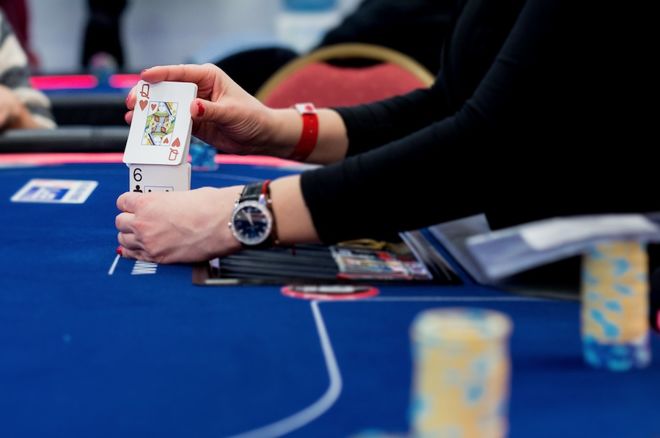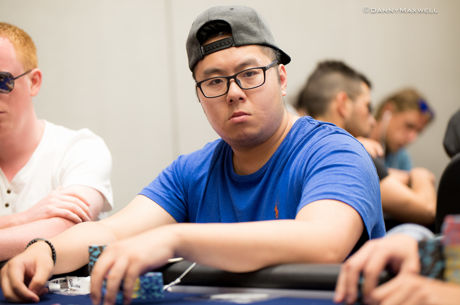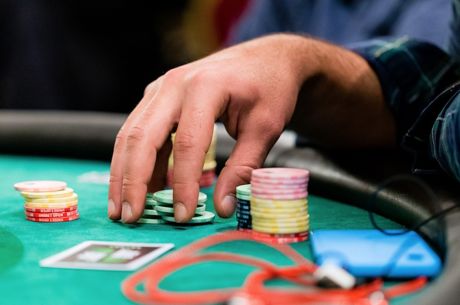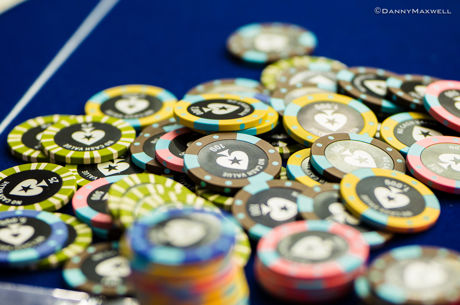What to Do -- and Not to Do -- About Unusually Good or Bad Poker Results

Last week I presented an overview of the concept of "regression to the mean" as presented in Gary Smith's new book, What the Luck: The Surprising Role of Chance in Our Everyday Lives.
The basic idea is that outlier performances �� whether good or bad, high or low �� tend to be followed by performances that are more average or more representative of one's actual ability.
The reason is that exceptional performances are usually the result of a big dose of either good or bad luck, which will not continue, due to the fluctuating nature of randomness. After all, if you win an Olympic gold medal, are the nation's most profitable CEO for a year, or write a best-selling book, there's a lot more room to go down from there than to go up.
Now let's look at how this concept shows up in the world of poker.
What does performance say about skill?
One of the general implications of regression to the mean that I didn't have space to explain last week is that an exceptionally strong performance is more likely to come from a person briefly exceeding his natural ability than from somebody performing at or below his natural ability.
Consider a baseball player with a .300 season batting average. It could be somebody whose natural ability is to hit .280 having his best year ever. It could be somebody who naturally hits around .300 year after year. Or it could be somebody whose career average is .320 having an off season.
But these possibilities are not equally probable. That's because there are a lot more players whose natural ability is about .280 than .300, and a lot more whose natural ability is about .300 than .320.
The implication for poker is clear. The winner of even the biggest, slowest, most skill-dependent tournaments is probably not the entrant with the most raw poker talent. Of course, it's also unlikely to be a beginner who got history's most astounding run of good luck. The winner is usually a player who is better than the average skill of the field, though not actually the very best, and who got very, very lucky.
This is hardly a groundbreaking observation �� in fact, it's conventional wisdom in poker. If you look the World Series of Poker Main Event (excluding the early years when the fields were tiny), many of the champions are clearly not the best players. They are simply better-than-average players who caught the breaks they needed.
Cue Phil Hellmuth here: "If there weren't luck involved, I would win every time."
The "Day 1 curse"
Sticking with the WSOP Main Event, it has often been noted that the chip leader at the end of Day 1 usually does not continue to do well on subsequent days. Some have dubbed this phenomenon the "Day 1 curse."
There are undoubtedly many factors that contribute to it. An aggressive style that accumulates chips is also risky, and will eventually crash and burn. Opponents adjust. Cockiness causes poor decisions.
But we can be sure that a large part of the explanation is simply regression to the mean �� that is to say, the exceptional run of early good luck doesn't continue.
The Day 1 table full of amateurs turns to the Day 2 killer table draw. The player's monster hands start yielding only small pots because nobody has a strong second-best hand. The player starts losing races instead of winning them. Players "regress" (or return) to the "mean" (their average level of performance).
Are poker coaches effective?
One of the most important implications of regression to the mean is that it's easy to be fooled into thinking that something caused the change in outcome from the first measurement to the second, when the true explanation might be nothing more than the ebb and flow of luck.
As mentioned last week, the college students with the highest or lowest scores on a midterm exam will typically not also be the ones with the highest or lowest scores on the final exam; their second scores will tend to land closer to their natural ability. It's tempting to concoct a causal explanation for this �� e.g., those with the highest scores got complacent and didn't study as hard for the final, while those with the lowest scores were motivated to work more diligently.
That can certainly be part of it. But a large part is usually pure chance �� things like the match or mismatch between what questions were asked and what material the student happened to know best.
It's easy to be fooled into thinking that something caused the change in outcome from the first measurement to the second, when the true explanation might be nothing more than the ebb and flow of luck.
Many poker players who hire coaches do so because they have hit bottom. They have just experienced a terrible losing streak, or this year's profits were substantially below last year's.
Now, some poker coaches are really good, and can help improve the performance of nearly any client who follows their advice. But some are less helpful, not really skilled at analyzing other players' problems and providing good tools for improvement. Still others are pure charlatans, and take money in exchange for worthless interventions like sending "positive energy and intentions" to their clients. (I am not making this up; such people really are out there, and some of them have taken a ton of money from some of our game's most famous players.)
Regression to the mean tells us that if you start working with a poker coach when you're at a low point in your results, you're likely to see improvement even if the coaching is worthless. Again, this is just due to a stretch of bad luck coming to its natural end, not because of anything the coach did for you. But your inclination will be to credit the coach for the turnaround in your profit.
This is directly comparable to a dubious intervention peddled for a medical condition that has natural ebbs and flows �� say, wearing copper bracelets for arthritis. Arthritis pain naturally waxes and wanes in intensity, and people predictably look for interventions when their pain is at its worst. So anything they do is falsely going to appear effective when the pain simply follows its natural tendency to move back toward its average level.
You can make things worse
If tracking your poker profits shows that you've just finished an uncharacteristically bad month or year, most will automatically start to wonder what has caused the downward turn. This is a healthy impulse. Poker performance is subject to all sorts of insidious, subtle causes that we may not notice unless we actively seek them out.
But it's also important to remember that the result may be partly or even predominantly due to simple variance in luck. If so, regression to the mean tells us that the bad times will end, and profits will tend to rise back to their long-term average level, in which case all that is needed is patience to ride out the storm.
The danger in not recognizing this is that you might apply a "remedy" that makes matters worse. You might erroneously conclude that you've been playing too tight, or not aggressively enough, and make changes that actually take you further from optimal strategy.
You might decide to play in bigger games, for which you're not properly bankrolled, in an effort to quickly make up losses. Or you might develop a theory about an unlucky hat, card protector, or casino, which can cascade into a crippling set of superstitions. (Google "Wade Boggs superstitions" to see what can happen when you "believe in things that you don't understand," as Stevie Wonder phrased it.)
These responses to what is merely a temporary, random downturn in luck can be disastrous.
High points aren't your new expectation
Many poker players after a big tournament win start believing that such exceptional results will be the new norm. They adopt a lavish lifestyle, thinking that now the big money will flow in regularly. Then they crash hard when regression to the mean slaps them back down to the more modest results that are characteristic of their true ability.
It is an illusion that best-ever results accurately reflect superior ability, and thus will continue. The hard truth is that in most cases the player, while skilled, got exceptionally lucky to score the big win. Such performance is unlikely to be repeated, let alone become routine.
This shows the wisdom of Doyle Brunson's stock answer to a common question: "When people ask who's going to be the next great player I tell them to come back in 20 years and see who's still around."
Conclusion
Regression to the mean is everywhere that luck plays a part in outcomes �� a description that includes poker in spades (so to speak). Understanding it can help you avoid erroneous conclusions and actions in response to unusually good or bad poker results. As the old adage says, "This too shall pass."
Robert Woolley lives in Asheville, NC. He spent several years in Las Vegas and chronicled his life in poker on the "Poker Grump" blog.









